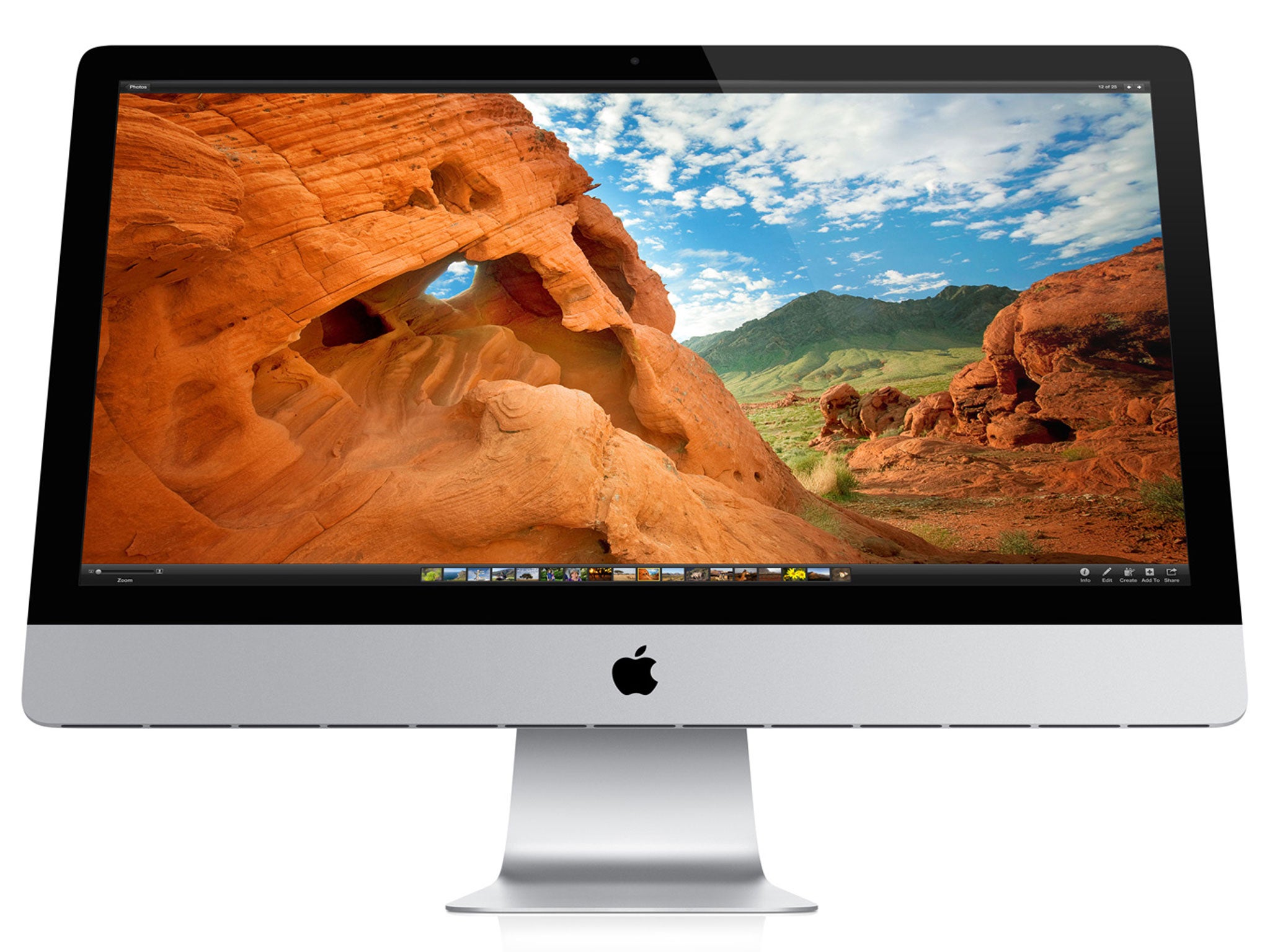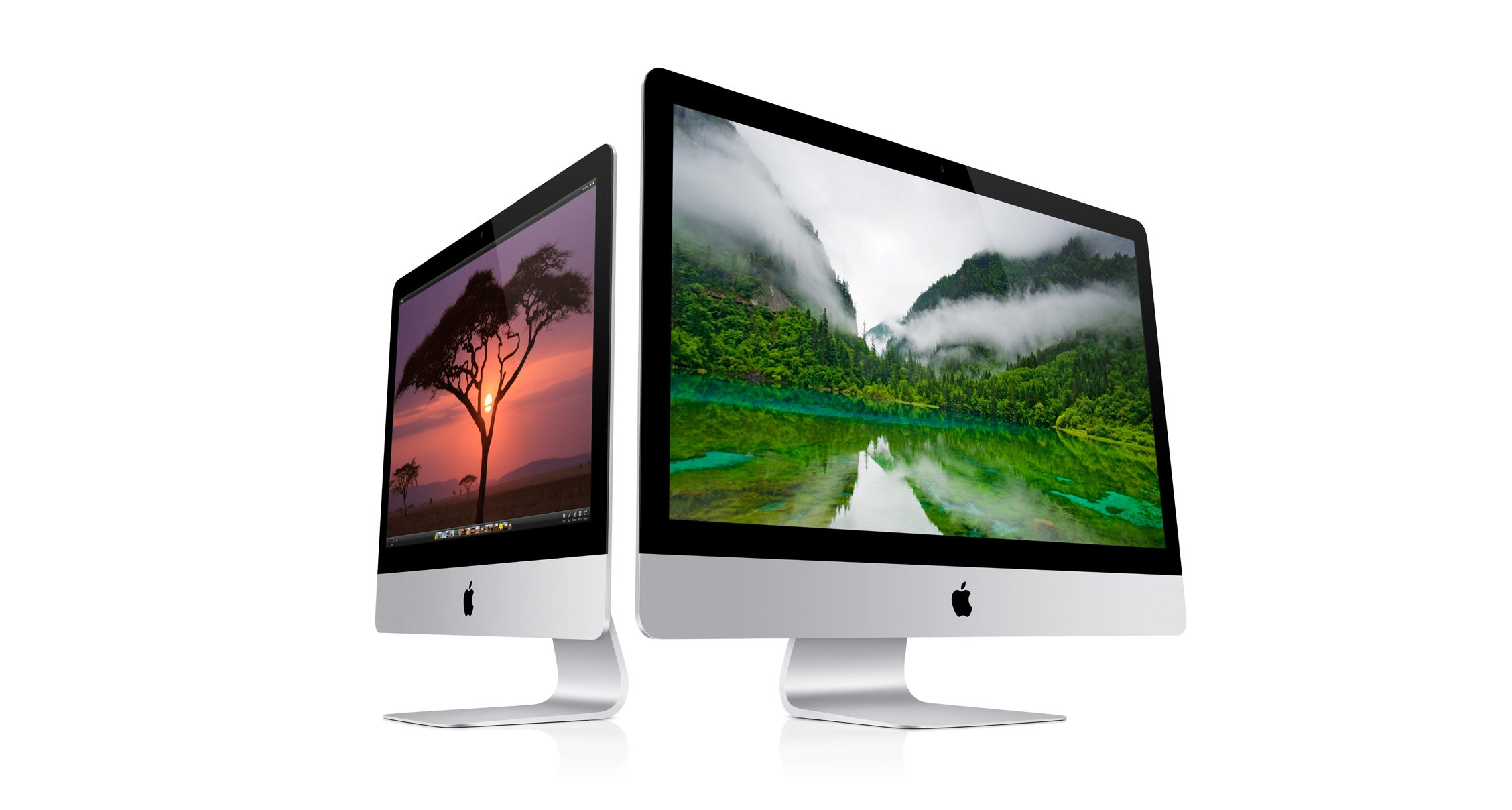Apple updates the iMac with Haswell processors and Wi-Fi that is 'three times faster than the previous generation'
Flagship desktop range comes with screen sizes of 21- or 27-inches, with 8GB of RAM and 1TB Fusion Drive harddrives as standard

Apple has announced an update to their flagship iMac desktop computers, adding the latest ‘Haswell’ processors built by Intel and support for more flash-memory storage.
“iMac continues to be the example that proves how beautiful, fast and fun a desktop computer can be,” said Philip Schiller, Apple’s senior vice president of worldwide marketing, in a statement today.
The new iMacs also include the next generation of Wi-Fi standards (802.11ac) which Apple claims is “up to three times faster than the previous generation”.
The entry level iMac with a 21-inch screen features a 2.7GHz quad-core Core i5 processor and Intel’s new graphics standard (Iris Pro). The high-end 21-inch and 27-inch models use the same processors running as fast as 3.4GHz, with customers “looking for the ultimate in performance” advised to try the quad-core i7 processors.
Apple has also upgraded their Fusion Drive – a combination of SSD and HDD memory. SDD drives (known as ‘solid state memory’) are speedier but more expensive, whilst HDD drives (the normal, spinning drives still common in most desktops) are slower and cheaper.
Using both in concert allows users to store the operating system on the SSD and less commonly-accessed files on the HDD, making for quicker boot times without paying out the ear for all-SSD memory.
The iMac’s current look was first revealed in November last year, with the removal of the optical drive allowing Apple to slim the edges of the machine down to just 5mm.
The updated 21-inch iMac retails for £1,149 with the price rising to £1,749 for high-end 27-inch model. The computers come with 8GB of memory and 1TB hard drives as standard.
However, if you’re really set on stretching the bank, you can max out the hardware specs (including 1TB of flash storage and 32GB of RAM) for a final price of £3,473 (shipping is free).

What is Haswell anyway?
Apple has put it in their new iMacs and yesterday Microsoft said Haswell would be powering their new Surface 2 tablets, but what are consumers getting from Intel's new processors?
Announced back in June this year, ‘Haswell’ is the name given to the latest generation of Intel’s Core processors (a brand name for its mid/high range products – Celeron is the entry-level line). Instead of boasting faster power, the Haswell range promises 20 times more power-efficiency when idle compared to previous generation chips.
Intel’s decision to concentrate on efficiency over speed is due to several factors. Firstly, the chip-maker wants to compete with Cambridge-based ARM, a company whose chip designs power the vast majority of mobile devices thanks to their low levels of power-consumption.
Another reason for focusing on efficiency over power is perhaps the coming end of Moore’s Law. This is the maxim predicting that processing power in computers will double roughly every two years. Whilst this has been true for decades there are many high profile figures who think its day is over, including Linux-inventor Linus Torvalds.
Essentially it's becoming harder for chip manufacturers to squeeze more and more power out of the same-sized chip dies, and with the rise of mobile devices, why focus on battery-guzzling chips that would only frustrate consumers and manufacturers alike?
The result is Haswell. It’s got a more power efficient design (which also makes for quieter computers because they need less cooling fans) and has better integrated graphics. It’s not the biggest step forward in top-end computing but it still delivers more power than 99 per cent of consumers need.
Join our commenting forum
Join thought-provoking conversations, follow other Independent readers and see their replies
Comments
Bookmark popover
Removed from bookmarks